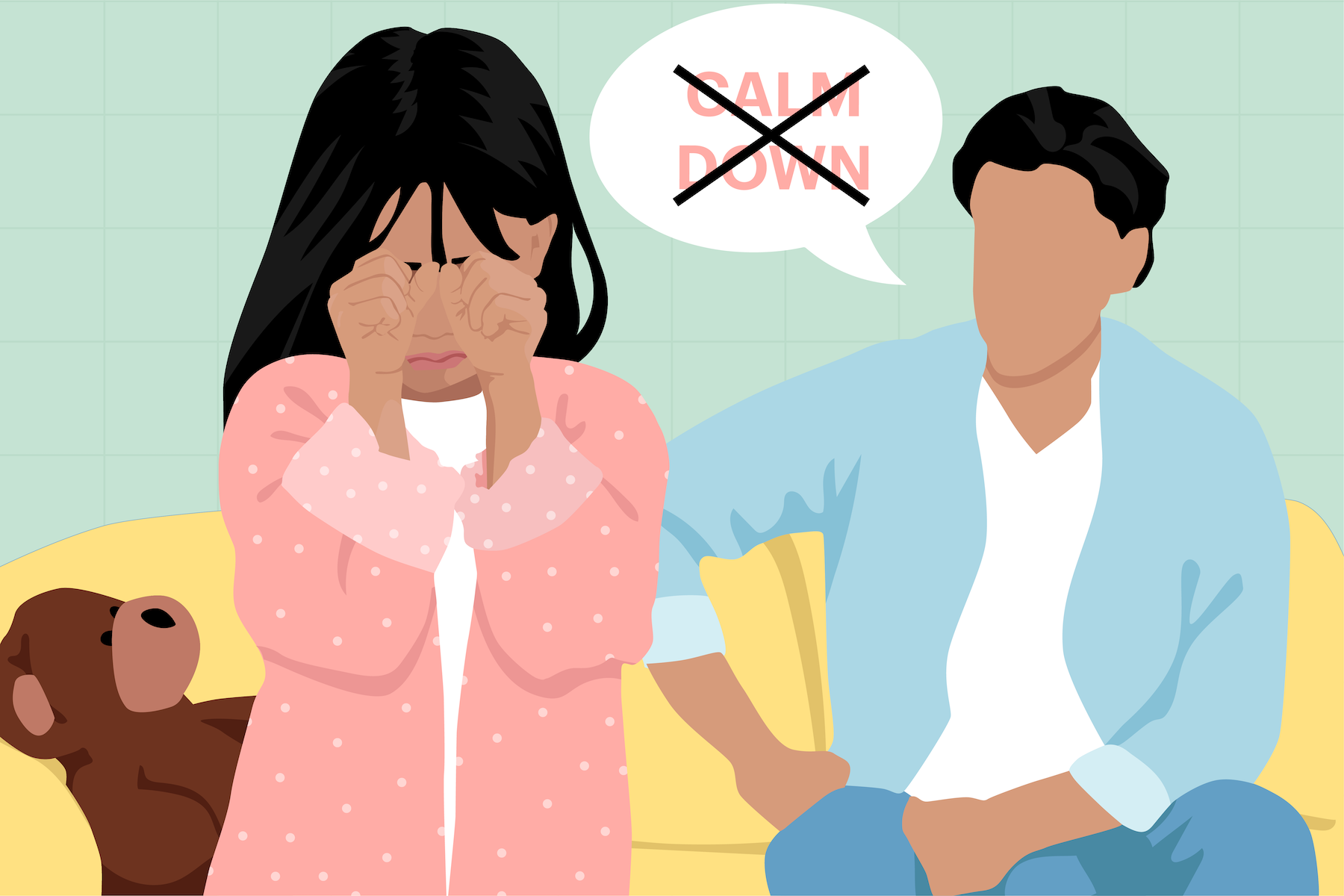
One of my favorite qualities of my energetic 6-year-old daughter is her big capacity to feel. She is sympathetic and empathetic. She wears her heart on her sleeve and has literally wiped tears from my eyes. Unfortunately, these traits also make her very sensitive. She regularly melts down.
While I always try and meet her where she is—I hold her on the couch, on the bed, and even on the floor—my husband doesn't know how to process her feelings. He says things like, "Why are you crying?" and "Calm down." As her mother and a mental health advocate, I can tell you these words, especially the second phrase, do not work. They only make her feel worse.
The phrase "calm down" is controlling, dismissive, and suggests a person's feelings are invalid. It can also exacerbate anxiety. I know when someone tells me to "calm down" when I feel upset, my mind races even more.
Telling your child to "calm down" also doesn't encourage growth or promote healthy coping skills. Instead, the phrase causes your child to stifle their feelings and learn that it's not OK to cry or get upset. "It tells the child that expressing emotions is not accepted or appropriate. It tells the distressed child to stop because they are 'too much,'" says Rachael Snyder, a clinical psychotherapist in Southfield, Michigan, specializing in teen anxiety, depression, and trauma.
This dismissive language can also affect children when they grow older. According to Snyder, when one's emotional needs are repressed during their childhood, they struggle to manage said needs as an adult. "There are adults that hold in or bottle up their emotions because at one point of their life they were told it's not OK to express those," says Synder.
What Can Parents Say Instead?
What can you do when your child becomes overwhelmed, overstimulated, and overloaded? To help kids ease their emotions, use slow speech, a steady tone, and encourage them to separate their emotions from their behavior. In my house, I make it a point to name, not shame, emotions. I want my daughter to understand that anger, frustration, and sadness are normal. Feeling your feelings is OK, but acting out is not.
Changing your language is critical, says Shannon Freud, MSW, RSW, a social worker from Toronto. "Rather than saying 'calm down,' say something like, 'Hey, I'm here for you. What do you need from me right now?'"
Synder agrees: "Using statements like, 'You're really sad right now, do you want me to sit with you?' or 'That made you mad when you broke your toy, do you want to talk about it?' can be very helpful." These statements validate a child's emotions, lets them know it's OK to have those feelings, and helps them feel they're not alone.
Calm down tools are another great way for both parents and children to alleviate stress. I have music and monotonous tasks like folding laundry and washing the dishes when I'm feeling anxious, while my daughter has a stress ball, paddle ball, a special blanket, and a container of Silly Putty. Recently, I gave her Breathe With Me Barbie, which comes with five, pre-programmed meditation exercises and helps her breathe through her thoughts and feelings in a guided way.
That said, staying levelheaded can be hard, especially when your child is screaming, crying, and/or hitting things. I've "snapped" time and time again. But the best thing you can do, for yourself and your child, is to model healthy behavior and to take a step back before speaking.
"If the parent or caregiver has a tough time responding to their child's needs, the adult can and should take a break from the conversation so that they can be more emotionally available to their child," says Freud. "It also helps to connect with the child first before trying to correct their behavior."
